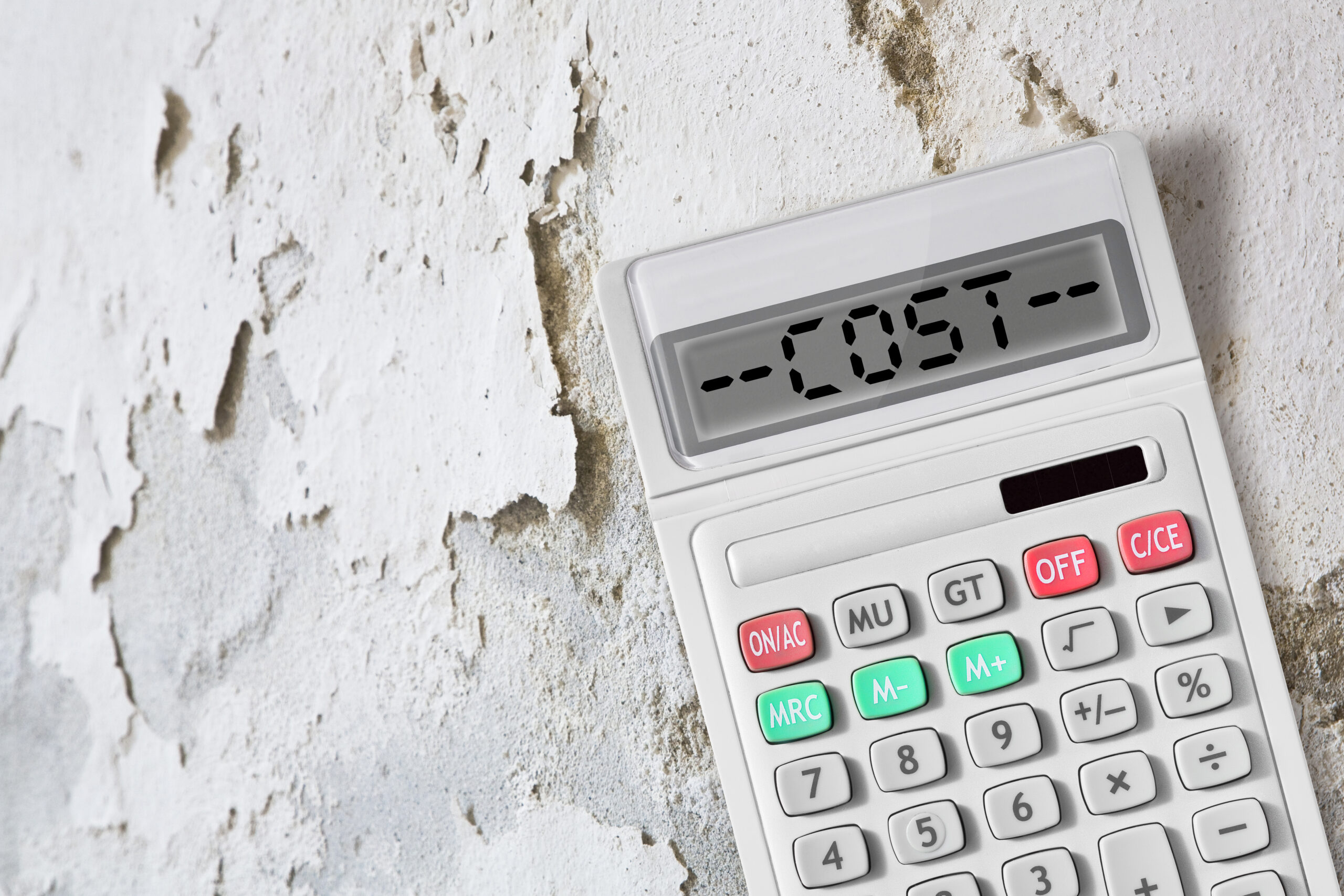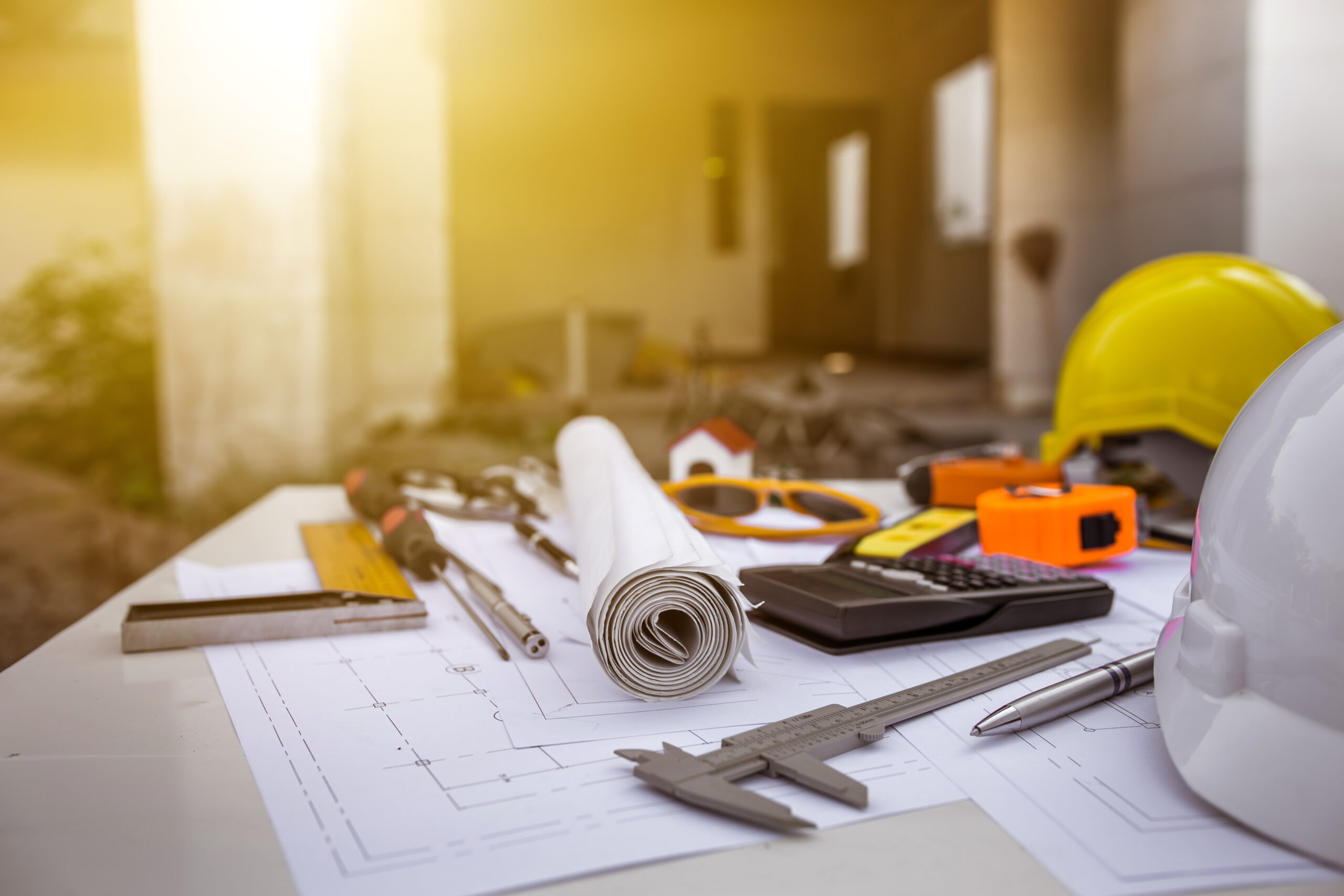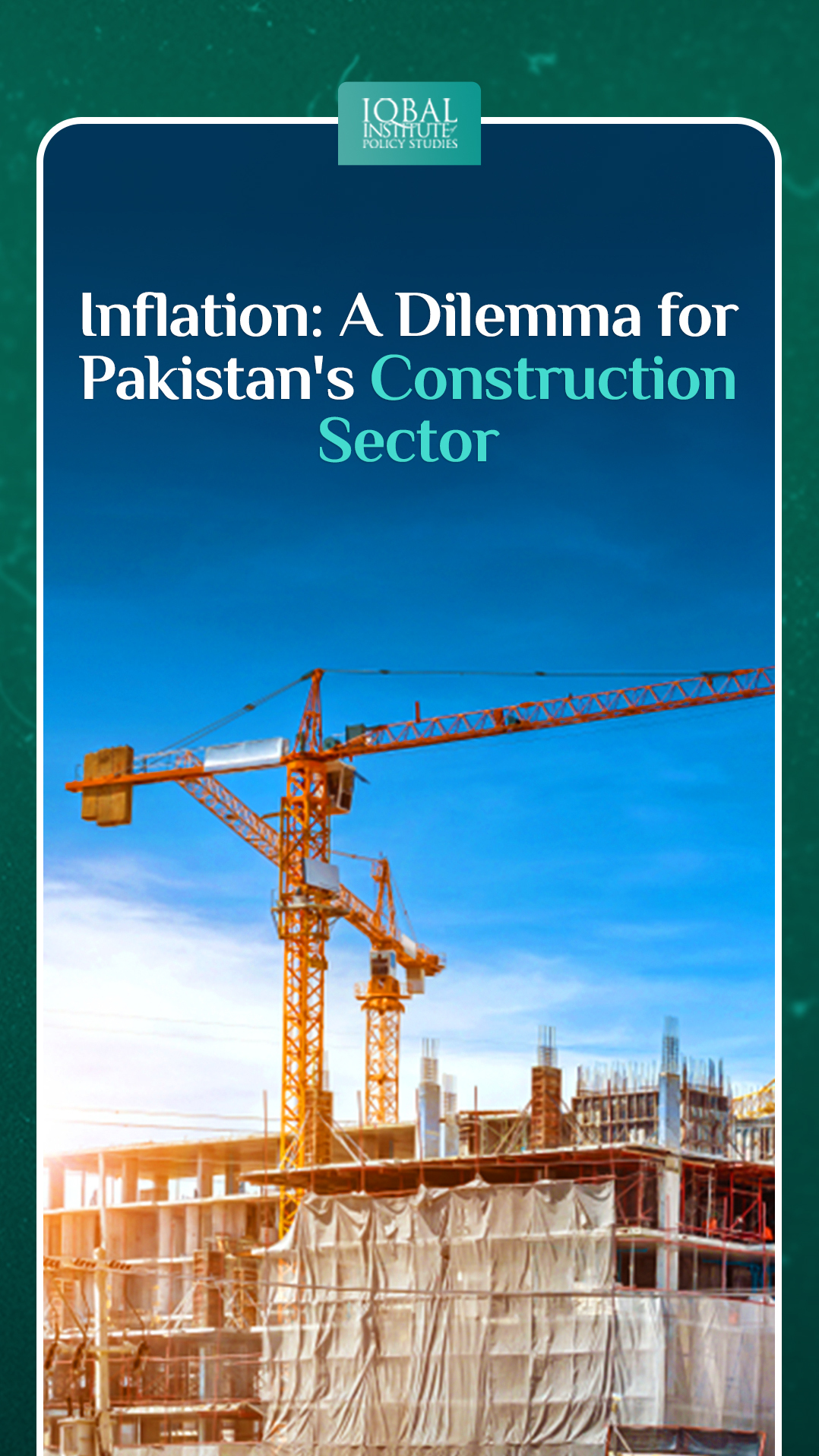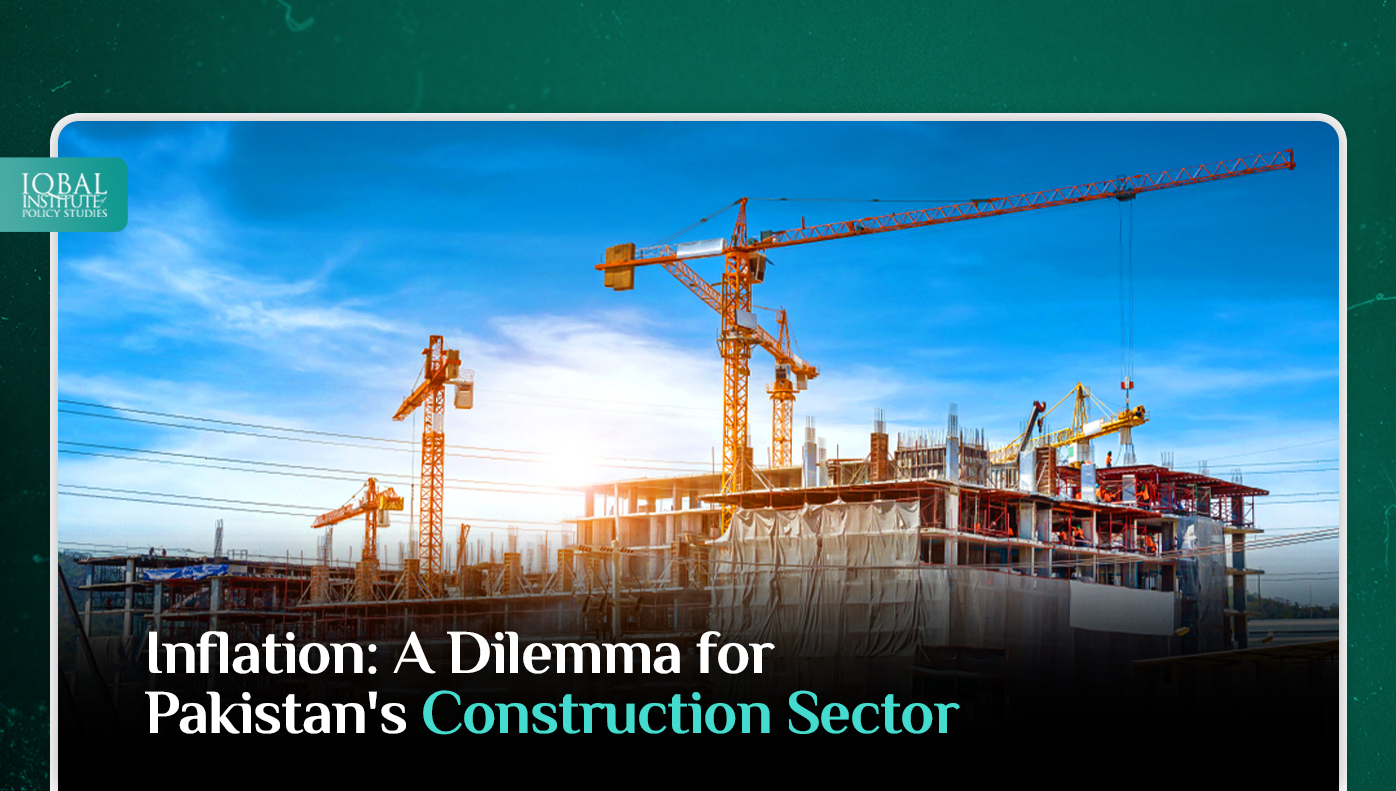The construction industry is considered the backbone of the economy. The industry is large and fragmented and often has not been a high priority of the government. However, the construction industry of Pakistan has contributed PKR 1,409 billion (US$ 7.8 million) to the GDP in 2021. However, on a year-on-year basis, its growth rate is 14.4%, and its share in non-agriculture employment is over 12%. It was anticipated that the construction industry’s growth would increase by 92% by 2050. The sector can employ skilled as well as unskilled workers. Currently, the government imposed a tax of 7% along with the increase in inflation, petrol and energy prices have affected the industry’s growth.
Inflation, an actual increase in prices and a decrease in purchasing power and gravely affect society in several ways. Inflation affects the socioeconomic status of the people and the economy as a whole. The inflation in Pakistan was 21.3% in June’22, which increased to 42.3% in the second week of August, reaching its highest level in the last 13 years.
Like all other sectors, the construction sector is also affected by inflation both directly or indirectly as the prices of materials and other construction inputs fluctuate continuously, this sector will experience problems like a decline in sale volume, extended production timelines, poor cash flow management and other challenges which in turn decreases the economic growth.
How Does Inflation Affect Construction Industry?
Inflation affects businesses, clients and employees altogether as the contractor will shift the burden of the prices of the increased materials towards the client and buyers.
Price of Construction Material
Inflation increases the cost of the material, reducing the project’s profit margin. It also affects the bidding process of the projects. In Pakistan, because of inflation, construction project prices have increased from 30% to 35%. It was reported that contractors working on government development schemes and private commercial and residential projects demanded an escalation in price from the project owner in the wake of the stagflation. The price of steel has been jacked up to 20%. The price per cement bag has increased to PKR 1035 -1045. Nonetheless, the government has increased the withholding tax to 7%, escalating the project cost and reducing the profit margin for contractors.

Price of other Construction Inputs
Inflation jacked up the cost of other inputs like fuel, technology and types of equipment. For instance, in Pakistan, the fuel price was around PKR 150 in 2021 and now is PKR 224.8 in 2022. So, higher fuel prices mean a high energy cost, higher transportation cost (i.e., an increase of up to 20% in the case of Pakistan) and higher cost for rented machinery.
In a short span of just one year, the price of scrap increased by 26%, electricity increased by 79%, gas increased by 187%, the Pakistani rupee devalued by 37%, cargo charges increased by 220%, and the financial charges (cost of borrowing money including interest rate etc.) have gone up by 107%.
The manufacturers of construction-related equipment have to bear the high cost of production because of the increase in the cost of raw materials. Nonetheless, inflation triggers the cash flow management problem, causes declines in sales and delays the production process.

Threats to the Labour Market
Due to an increase in the price of raw materials, the contractor has stopped their construction work which has increased the vulnerability of construction sector workers to find work. It was found that 85% of the Pakistan agriculture and construction sector workers depended on their daily income. With the construction sector work closure and the increase in food inflation, workers cannot find a job then, and it will be difficult for them to buy basic human necessities.

Government Reforms to Support the Industry
To boost the Construction industry, the government has initiated various reforms such as:
90% reduction in fixed tax liability for Naya Pakistan Housing Scheme;
The Source of investment for the construction sector will not be probed;
Fixed tax regime; tax to be paid in quarterly instalments;
Easy and simple tax registration;
Exemptions of income tax and tax on capital gain for builders and land developers;
One-time exemption of tax on capital gain on sale of personal accommodation of size up to 500sq feet yard house or 4000 sq feet yard apartment;
Exemption from withholding tax on services and purchase of building material.
Suggestions to Combat the Effect of Inflation
To address the inflation problems in the construction sector’s projects, the contractor must develop a technique to combat the inflation problem in the final budget estimation.
Proper Cost Analysis Before Bidding
The contractors must be realistic about the increased project cost due to inflation and make necessary adjustments when submitting bids for the projects.
Discussed Risk Sharing with Stakeholders
Inflation risk should be discussed with the contractors and project owners through alternative contract conditions or alliance-style agreements.
Purchase Material Ahead of Time
The best practice will be to review the supply chain process and fix the issue that delays the construction process.
Consistent Cash Flows
Maintaining constant cash flows is essential for successful project execution and helps mitigate inflation’s effect. As most construction projects demand a down payment from the contractor in advance, this may pressure the contractor to manage operations like payroll or expenses, particularly when the cost of an ongoing project increases due to inflation.
Way Forward
The government has to step up and take measures to reduce the cost of inputs. The government has to provide tax relief to this sector and energy price concessions so that investors will complete their projects in a timely manner and create opportunities for daily wagers. It is a dire need to integrate with banks to provide low-interest rate mortgages to complete under-developed projects. Nonetheless, through innovation and research government can devise cost-effective ideas so that contractors will not face problems with cash flow to finance their projects during high inflation. Additionally, to improve the sector’s productivity, the government has to invest in skills development, vocational education and training, and improve working conditions to enhance the sector’s image and service quality.
Conclusion
The construction industry is the cornerstone of the economy. This industry can potentially improve economic growth of the economy and job opportunities. The increase in inflation, energy, and fuel prices negatively affects the industry. However, contractors and government must work together to improve the industry’s performance.



Leave a Reply